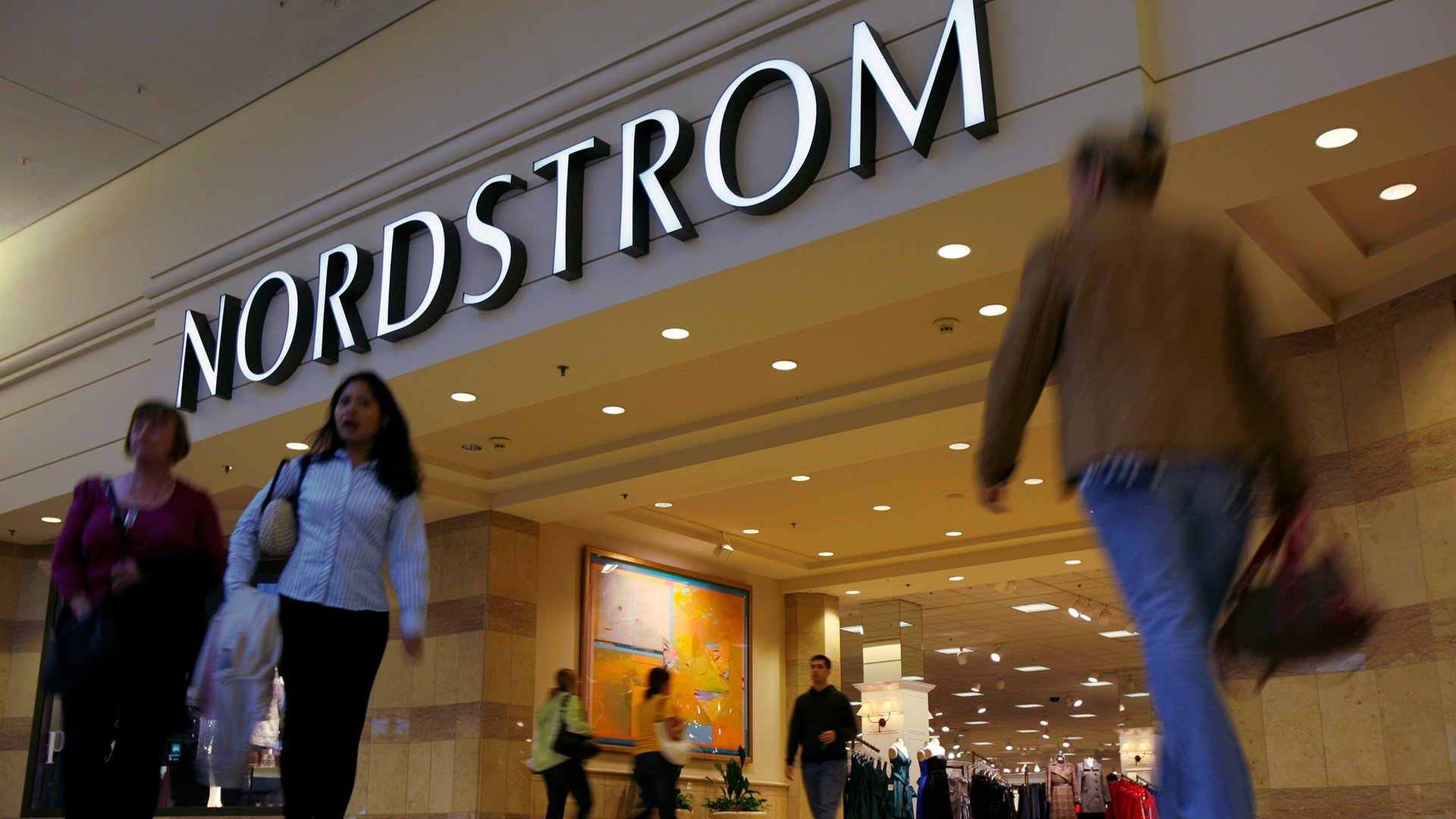When it comes to retail tracking, shoppers prefer being watched in their homes
Brick-and-mortar retailers are starting to track your behavior the same way online stores do, and customers aren’t happy about it. According to The New York Times, Nordstrom started an experiment in data collection last fall, tracking customer movement by following the wifi signals in their smartphones. But when they posted a sign alerting shoppers to the practice (and letting them know that they could opt out by turning off their phone’s wifi connection), people freaked out.


Brick-and-mortar retailers are starting to track your behavior the same way online stores do, and customers aren’t happy about it. According to The New York Times, Nordstrom started an experiment in data collection last fall, tracking customer movement by following the wifi signals in their smartphones. But when they posted a sign alerting shoppers to the practice (and letting them know that they could opt out by turning off their phone’s wifi connection), people freaked out.
Nordstrom stopped the project in May, but probably not for good—especially since many other retailers are rolling out similar technology. The question is, how much can a store find out about you by creeping on your cellphone, and is it really worse than online data tracking, or even as bad?
The tech that Nordstrom implemented was really pretty minimal: Essentially, it tracked foot traffic around the store, keeping counts of how many passerby entered and how long they spent in a given department. The result is a rough picture of how customers move throughout the store, indicating whether conditions like long lines or fewer salespeople on the floor affect how long customers stick around.
Some companies, like RetailNext and Brickstream, add in cameras that can track individual shoppers, and use their cellphones to tell if they’re a repeat shopper. The companies’ cameras can determine approximate age and gender, so they can, for instance, figure out how many adult male shoppers stop at the shoe department before deciding not to buy any loafers.
Even Nordstrom’s minimal approach to in-store data collection was met with discomfort from customers. Robert Plant, a computer information systems professor at the University of Miami, told The Times that the discomfort probably has something to do with people’s perceptions of being watched in real time (by brick-and-mortar retailers) versus having their information collected (by online retailers). “The idea that you’re being stalked in a store is, I think, a bit creepy,” he said, “as opposed to, it’s only a cookie—they don’t really know who I am.”
But is online data collection really less invasive, or are we just more used to it? Last year, a survey by Accenture asked 2,000 shoppers from the US and the UK about online retail practices, and while 86% said they were concerned about tracking of their online shopping behavior, 85% said that while they were aware of the practices, they understood that it allowed stores to offer them unique content. And 64% of respondents said it was more important that they be given relevant offers than privacy, while only 36% thought it was better for websites to stop tracking them.
Tracking and data collection in physical stores may feel more like stalking, but in reality there’s a lot more that online tracking can learn about you based on just a few clicks, such as your alma mater, religion and favorite YouTube videos. According to Wired, Amazon has known everything about you since 2005. In that sense, squeamishness about in-store cellphone tracking, especially a system as benign as Nordstrom’s, seems misplaced.
If brick-and-mortar stores have any chance of wooing shoppers spoiled by online customization, it’s through their own version of tracking.